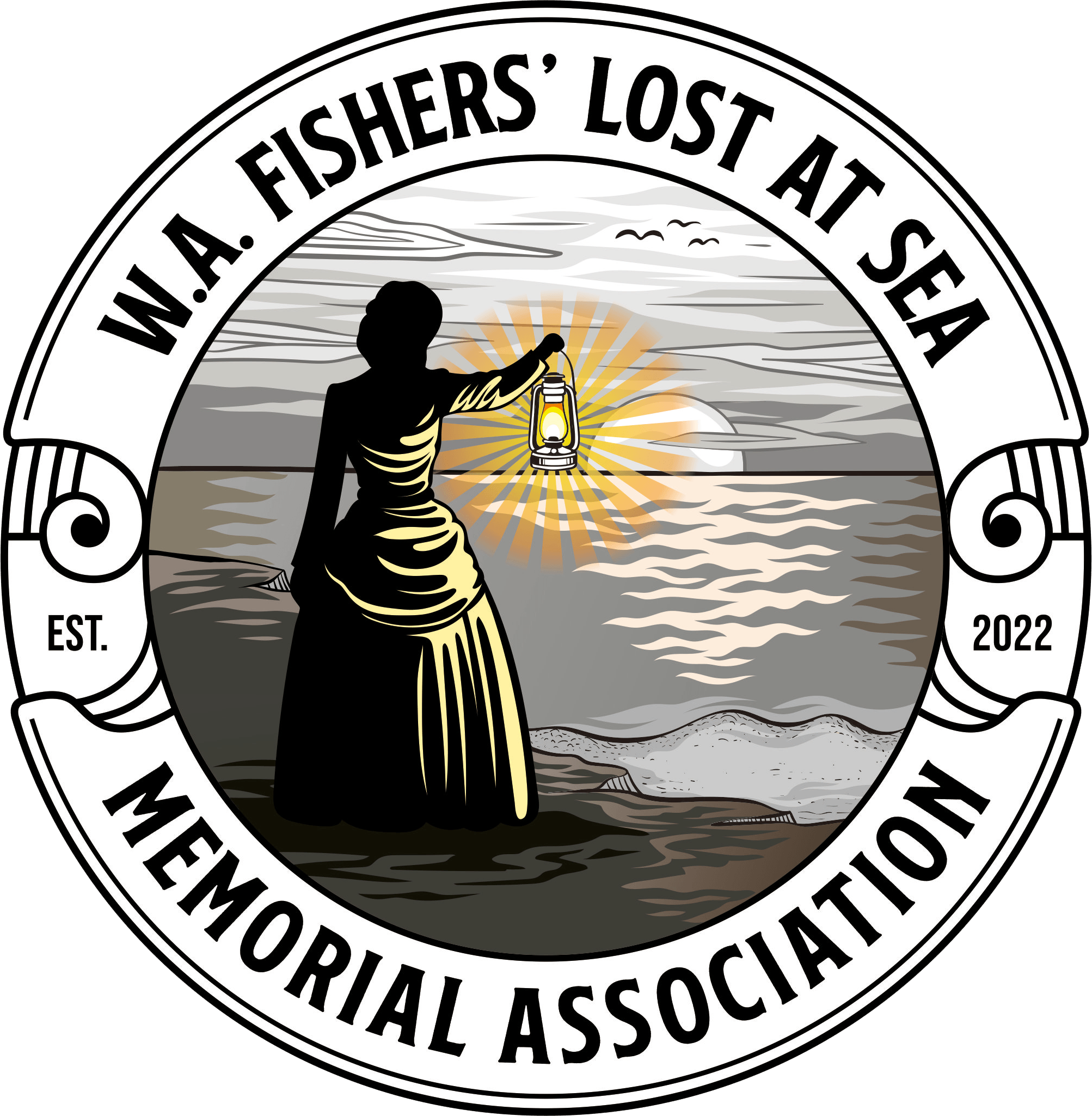Mazzeo Family
Country of Origin: Italy
Arrival in W.A.: 1953
W.A. Region Settled: Perth-Metro
Contrary to popular belief, the Sicilians who immigrated to Fremantle and pioneered the Fishing Industry were a heterogeneous bunch who originated from different towns. Each with their own distinct dialect and slight variation in cultural bent, as well as patron saint.
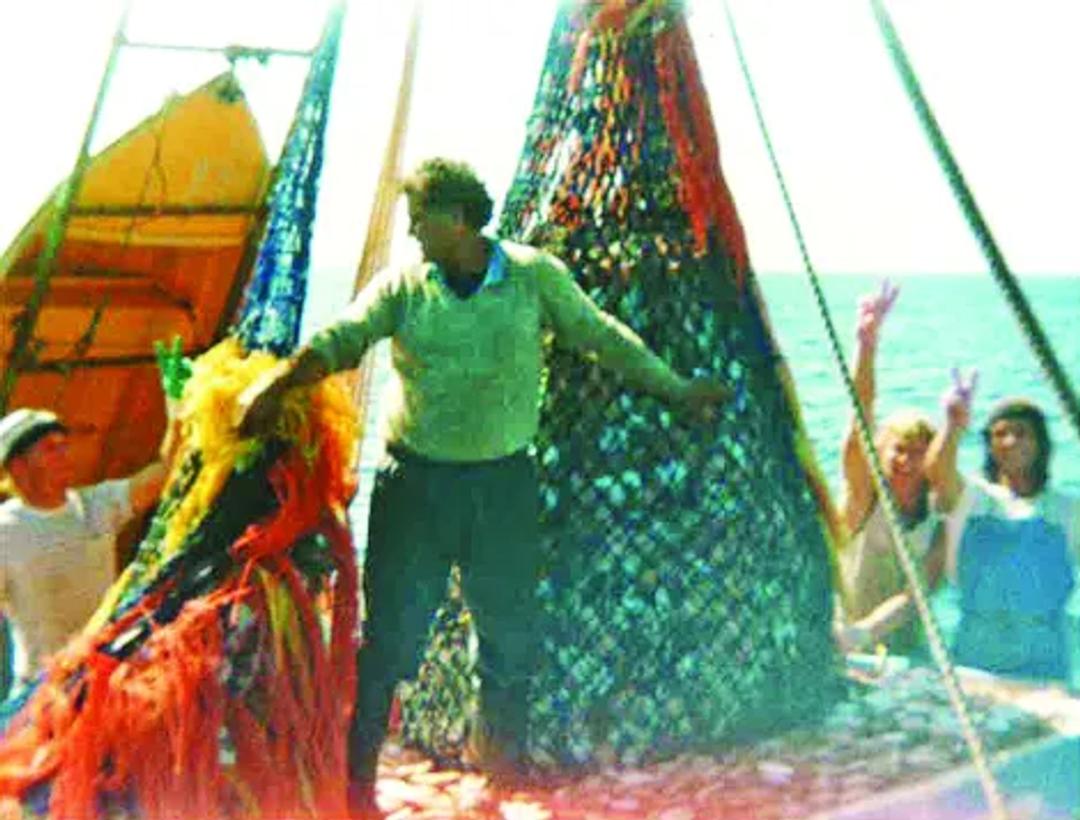
Frank Mazzeo scallop trawling
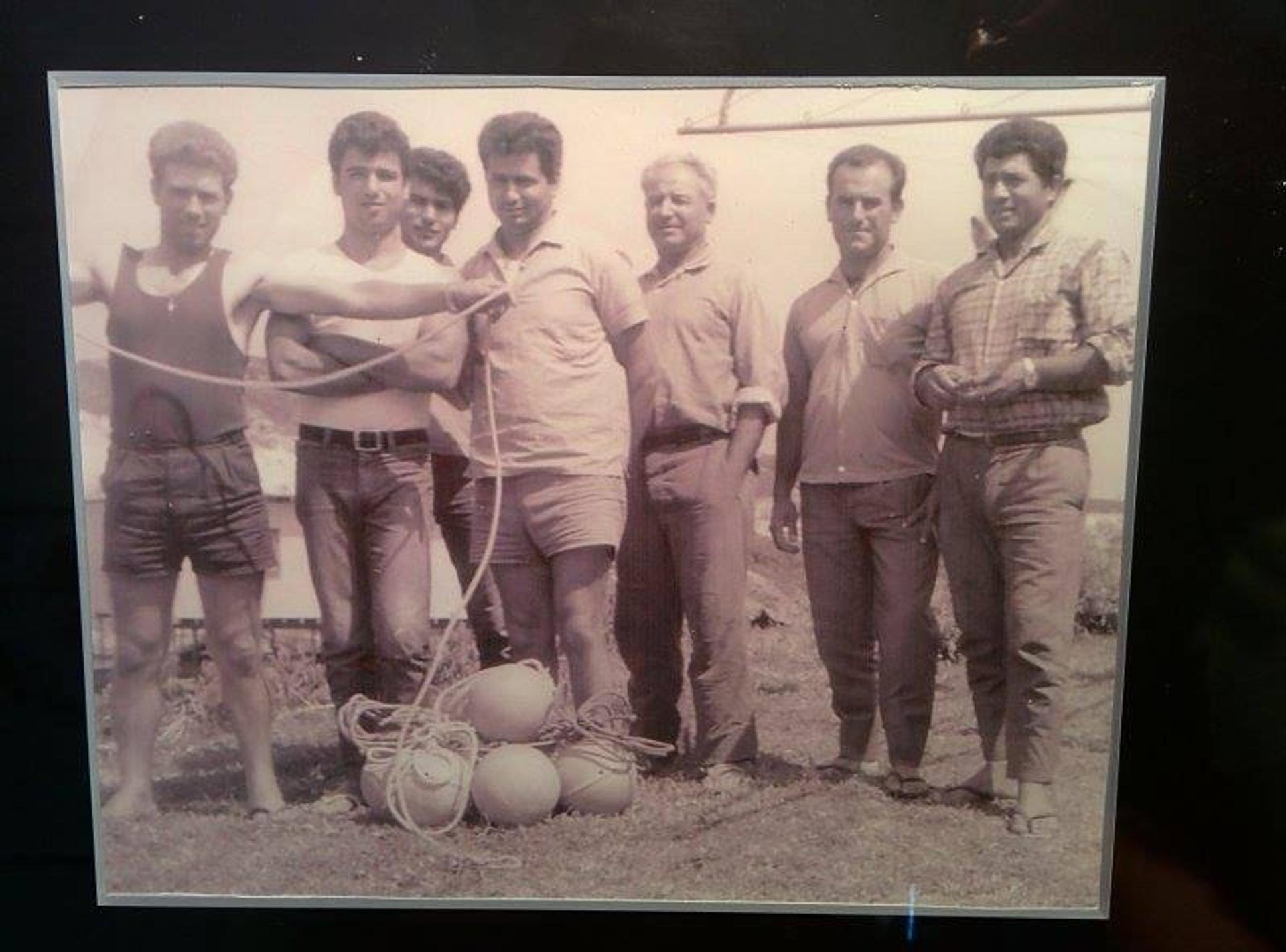
1967 Ledge Point La Macchia Family
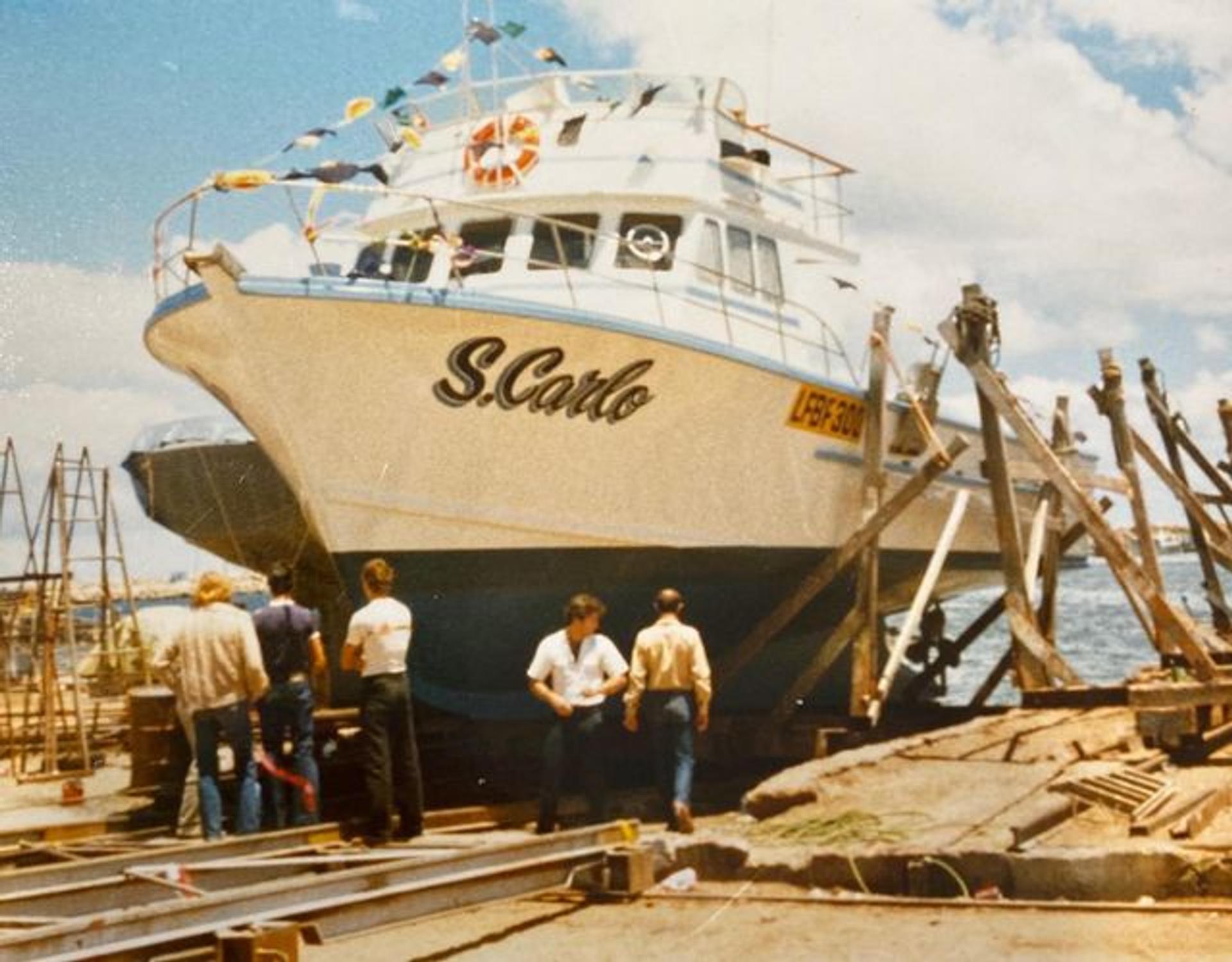
Gioacchino Mendolia's San Carlo
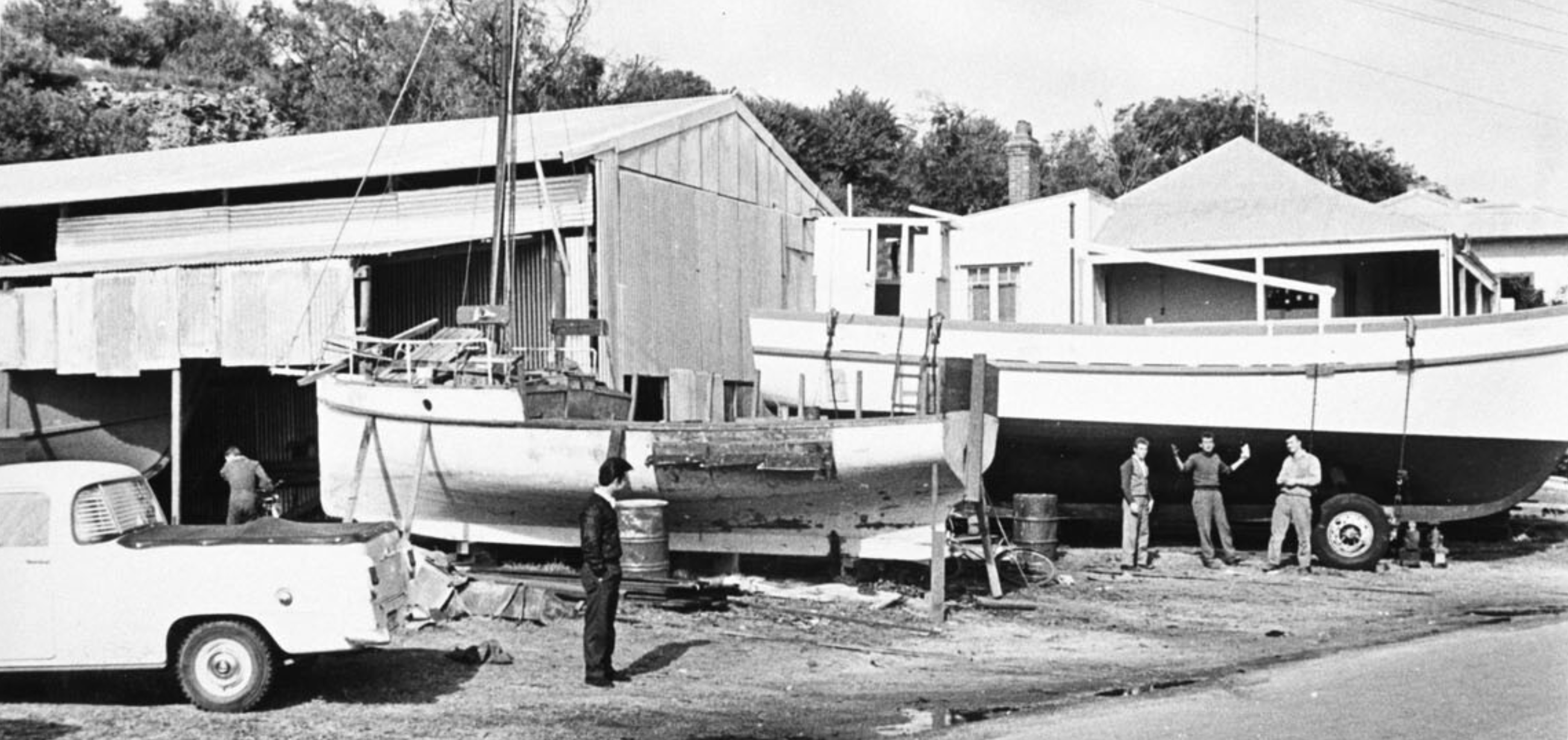
Tonnarella 1959 Shipyard
Most originated from the Province of Messina - with their roots belonging to the seaside towns of the Northern coastline, and the Aeolian Islands just to the North. The first and most numerous came from San Gregorio near Capo D’Orlando (the “Orlandini”), and many fishing families trace their origins to the first wave of Sicilians who settled around Rockingham and Point Peron at the turn of the 19th century. After the Second World War, another wave of Chain Migration affected the composition of the fishing industry. Once again, Fishers’ sought better pastures and escape from the post war depression and economic woes of southern Italy.
Surnames synonymous with different towns in Sicily
Augusta – Arangio
Falcone – Maisano, Napoli, Paratore
Filicudi – La Cava, Paino, Pittorino/Pittorini, Taranto
Lipari – Portelli, Raffaele, Spinella
Malo - Constanzo
Milazzo – Cambria, Salmeri
Portorosa - Ieraci
Rocca di Capri Leone – Paparone
Roccalumera – Briguglio, Micalizzi
Salina – Merlino
Sant’Agata – Befumo, Corrao, Sciano
Spadafora - Dimento
Tonnarella – La Macchia, Mazzeo, Mendolia
Torrenova – Beringheli, Carbonaro, Lenzo, Monastra
The Mendolia (arrived 1952), Mazzeo (1953) and La Macchia (1955) families originated from the small town of Tonnarella in Sicily.
The town of Tonnarella was declared in 1913 - renamed from the Port of Furnari. The area traces its origins to a watchtower built nearby and the first “Tonnara” operation allowed to operate after 1757. The initial request to operate a tuna fishery from the area were denied by the Royal Court as it was less than 3 miles from Oliveri - where another “Tonnara” was well established.
The “Tonnara” uses a system of fixed nets as a sort of trap for schools of Tuna. Lowering the nets takes great skill and a ritual of gestures and words is repeated to a rigorous procedure, unchanged for centuries. The network of chambers are arranged in rows connected by a series of doors to catch the tuna. When the chambers of these traps have a sufficient number of tuna trapped, the slaughter or “mattanza” begins. This is all coordinated and led by a “Raʾīs”- the Arab word for chief or leader. These days the “Tonnara” only takes place in a few areas of the world, preserved for cultural purposes. Growing up in these seaside towns meant guaranteed work in fishing, and the La Macchia, Mendolia and Mazzeo families brought their skillsets to Fremantle.
The Story of Frank Mazzeo
(As published in the Herald online 17 October 2014. – “A Bullet Through The Fishing Fleet”)
It’s just after 2am on a cool November morning in 1977 and the crews of Fremantle’s fishing fleet are slapping through the waves towards WA’s lucrative grounds—except Frank Mazzeo.
Despite being an ambitious young skipper and this being the opening of the season, Mazzeo is curled up in bed with his wife, Filomena. It’s easy to imagine a cheeky grin or two pulling on his face even though he’s sleeping, for he’s about to put a bullet through the fleet.
The bullet is the Aquarius, a leisure boat he’s converted into a trawler that, at 24 knots, is more than twice the speed of any other. It means he can sleep in till 5am and arrive at the fishing grounds before his rivals, and be back home tucking into dinner while they’re still chugging through the night.
“Back then everyone was doing 9 or 10 knots, but the Aquarius did 24 knots,” Mr Mazzeo proudly told the Herald this week, 37 years later. “After that the boats came up—15, 20 knots—and not one of them does less today.”
Born in Tonnarella, Sicily and arriving in Fremantle in 1953, Mr Mazzeo recalls that after the initial dropped-jaw responses to the Aquarius’ speed there was some jealousy. Fishing’s always been a tough, uncompromising business with tough, uncompromising characters, but with the extra speed and reach he was able to keep out of harm’s way.
Aquarius’ star shone brightly but briefly. Four months later she caught fire and Mr Mazzeo and his crew (brother Dominic and brother-in-law Giuseppe) had to abandon ship and be rescued by the Ricciardi family, fishing nearby.
Mr Mazzeo chartered a boat to finish the season but the owner warned he had to meet a prior commitment to take an international act out to see the seals at Carnac Island.
It turned out to be ABBA, who had just hit mega stardom after the release a few months earlier of Fernando. Mr Mazzeo says despite the hysteria, the Swedes were down-to-earth and everyone had a great time (he accidentally copped an eyeful of one “down below” but we’ll not reveal who). He was invited back to their hotel before that night’s sell-out performance at the entertainment centre and, despite a security guard’s raised eyebrows over the fisherman crashing the biggest band in the world’s party, he soon had them all chowing down on crayfish.
The Aquarius wasn’t Mr Mazzeo’s first major contribution to Fremantle’s fishing industry. He’d used his second boat, Santa Rita, to explore deep water which extended the crayfish season beyond December. Previously, fishers thought white crayfish disappeared after the season, but Mr Mazzeo dropped a few pots out further and discovered that where rock and coral gave way to a sandy bottom, there were plenty of crays still to be found.
Later he fished the coast around Bunbury and Cape Naturaliste, discovering new red crayfish grounds and was active helping immigrant fishermen get their licences to break into the industry. He says two other highlights of his career were sailing the Sea Tang from Cairns around the Gulf of Carpentaria and back to Fremantle, and taking a star turn in the Aussie film Justice, which starred Marcus Graham and Kerry Armstrong.
After four decades behind the wheel Mr Mazzeo hung up his skipper’s hat in 2000.
In 2016 he was recognised by the City of Fremantle for his 50 years of service on the Committee of the Fishing Fleet Festival Association.
Story Contributors
James Paratore
